
obs-cleanstream
CleanStream is an OBS plugin that uses AI to clean live audio streams from unwanted words and utterances
Stars: 110

CleanStream is an OBS plugin that utilizes real-time local AI to clean live audio streams by removing unwanted words and utterances, such as 'uh' and 'um', and configurable words like profanity. It employs a neural network (OpenAI Whisper) to predict speech in real-time and eliminate undesired words. The plugin runs efficiently using the Whisper.cpp project from ggerganov. CleanStream offers users the ability to adjust settings and add the plugin to any audio-generating source in OBS, providing a seamless experience for content creators looking to enhance the quality of their live audio streams.
README:
CleanStream is an OBS plugin that cleans live audio streams from unwanted words and utterances using real-time local AI.
If this free plugin has been valuable to you consider adding a ⭐ to this GH repo, rating it on OBS, subscribing to my YouTube channel where I post updates, and supporting my work on GitHub or Patreon 🙏
Check out our other plugins:
- Background Removal remove background (virtual green screen) from video
- Detect will detect and track >80 types of objects in any OBS source
- URL/API Source fetch API data and display it on screen as a video source
- LocalVocal speech AI assistant plugin for real-time transcription (captions), translation and more language functions
- PolyGlot a realtime local translation service based on AI.
- Add the plugin to any audio-generating source
- Adjust the settings
Check out the latest releases for downloads and install instructions.
This video walkthrough (YouTube) will explain various parts of the code if you're looking to learn from what I've discovered.
The filter is running Whisper in real-time to detect words in small chunks of the incoming audio. For each chunck it produces a decision which then determines if the audio rendering will play the original audio or e.g. a beep or silence. The processing happens in a separate thread and therefore there's a built-in lag/delay mechanism to make sure the audio decision (play, beep, silence) is in-sync with the actual audio playback based on the timestamp. The built-in delay is adaptive since some systems (e.g. with CUDA) can make faster decisions.
Here is an illustration of the process:
- OBS version 30+ for plugin versions 0.0.4+
- OBS version 29 for plugin versions 0.0.2+
- OBS version 28 for plugin versions 0.0.1
We do not support older versions of OBS since the plugin is using newer APIs.
CleanStream is an OBS plugin that cleans live audio streams from unwanted words and utterances, such as "uh"s and "um"s, and other words that you can configure, like profanity.
See our resource on the OBS Forums for additional information.
It is using a neural network (OpenAI Whisper) to predict in real time the speech and remove the unwanted words.
It's using the Whisper.cpp project from ggerganov to run the Whisper network in a very efficient way.
But it is working and you can try it out. Please report any issues you find. 🙏 (submit an issue or meet us on https://discord.gg/KbjGU2vvUz)
We're working on improving the plugin and adding more features. If you have any ideas or suggestions, please open an issue.
The plugin was built and tested on Mac OSX, Windows and Ubuntu Linux. Help is appreciated in building on other OSs and packages.
The building pipelines in CI take care of the heavy lifting. Use them in order to build the plugin locally.
Start by cloning this repo to a directory of your choice.
Using the CI pipeline scripts, locally you would just call the zsh script.
$ ./.github/scripts/build-macos.zsh -c Release -t macos-x86_64The above script should succeed and the plugin files will reside in the ./release folder off of the root. Copy the files to the OBS directory e.g. /Users/you/Library/Application Support/obs-studio/obs-plugins.
To get .pkg installer file, run
$ ./.github/scripts/package-macos.zsh -c Release -t macos-x86_64(Note that maybe the outputs in the e.g. build_x86_64 will be in the Release folder and not the install folder like pakage-macos.zsh expects, so you will need to rename the folder from build_x86_64/Release to build_x86_64/install)
Use the CI scripts again
$ ./.github/scripts/build-linux.shUse the CI scripts again, for example:
> .github/scripts/Build-Windows.ps1 -Configuration ReleaseThe build should exist in the ./release folder off the root. You can manually install the files in the OBS directory.
> Copy-Item -Recurse -Force "release\Release\*" -Destination "C:\Program Files\obs-studio\"CleanStream will now build with CUDA support automatically through a prebuilt binary of Whisper.cpp from https://github.com/occ-ai/occ-ai-dep-whispercpp. The CMake scripts will download all necessary files.
To build with cuda add CPU_OR_CUDA as an environment variable (with cpu, 12.2.0 or 11.8.0) and build regularly
> $env:CPU_OR_CUDA="12.2.0"
> .github/scripts/Build-Windows.ps1 -Configuration ReleaseFor Tasks:
Click tags to check more tools for each tasksFor Jobs:
Alternative AI tools for obs-cleanstream
Similar Open Source Tools

obs-cleanstream
CleanStream is an OBS plugin that utilizes real-time local AI to clean live audio streams by removing unwanted words and utterances, such as 'uh' and 'um', and configurable words like profanity. It employs a neural network (OpenAI Whisper) to predict speech in real-time and eliminate undesired words. The plugin runs efficiently using the Whisper.cpp project from ggerganov. CleanStream offers users the ability to adjust settings and add the plugin to any audio-generating source in OBS, providing a seamless experience for content creators looking to enhance the quality of their live audio streams.
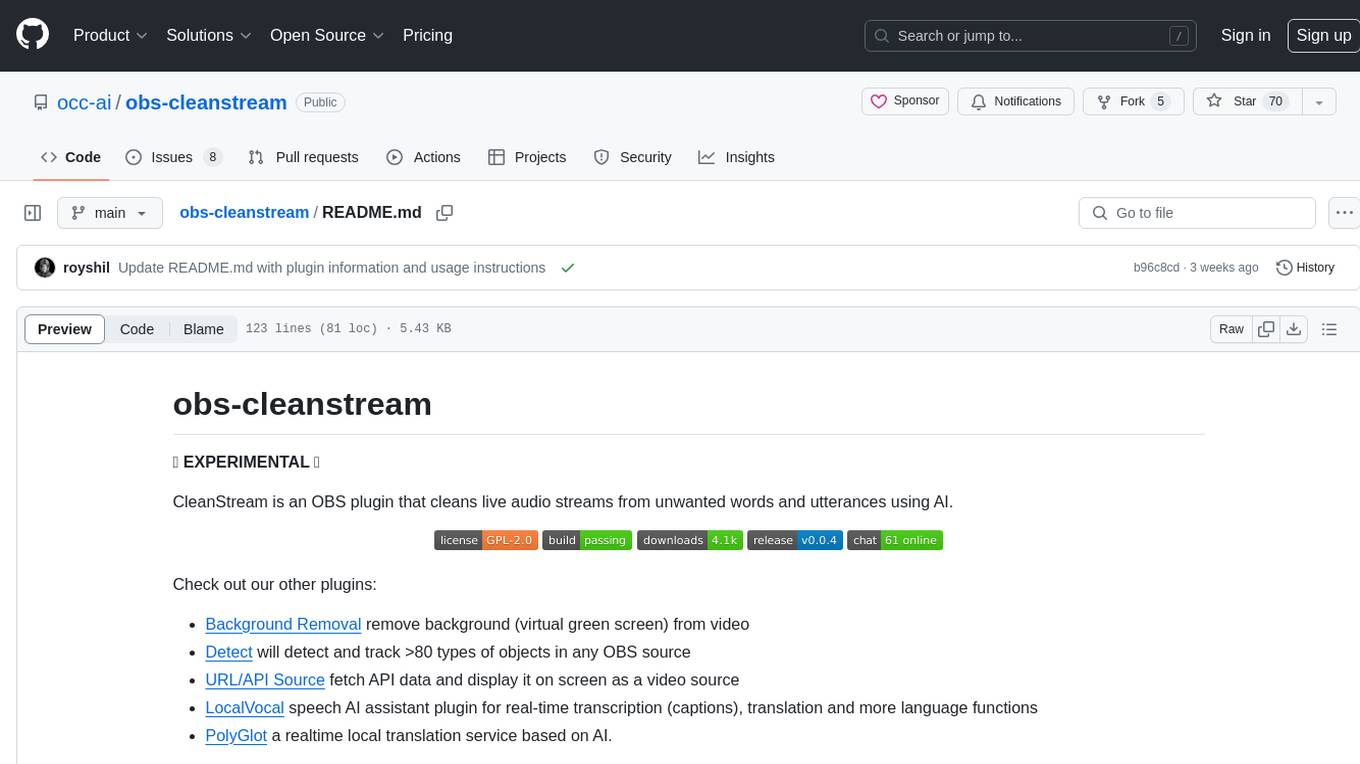
obs-cleanstream
CleanStream is an OBS plugin that utilizes AI to clean live audio streams by removing unwanted words and utterances, such as 'uh's and 'um's, and configurable words like profanity. It uses a neural network (OpenAI Whisper) in real-time to predict speech and eliminate unwanted words. The plugin is still experimental and not recommended for live production use, but it is functional for testing purposes. Users can adjust settings and configure the plugin to enhance audio quality during live streams.
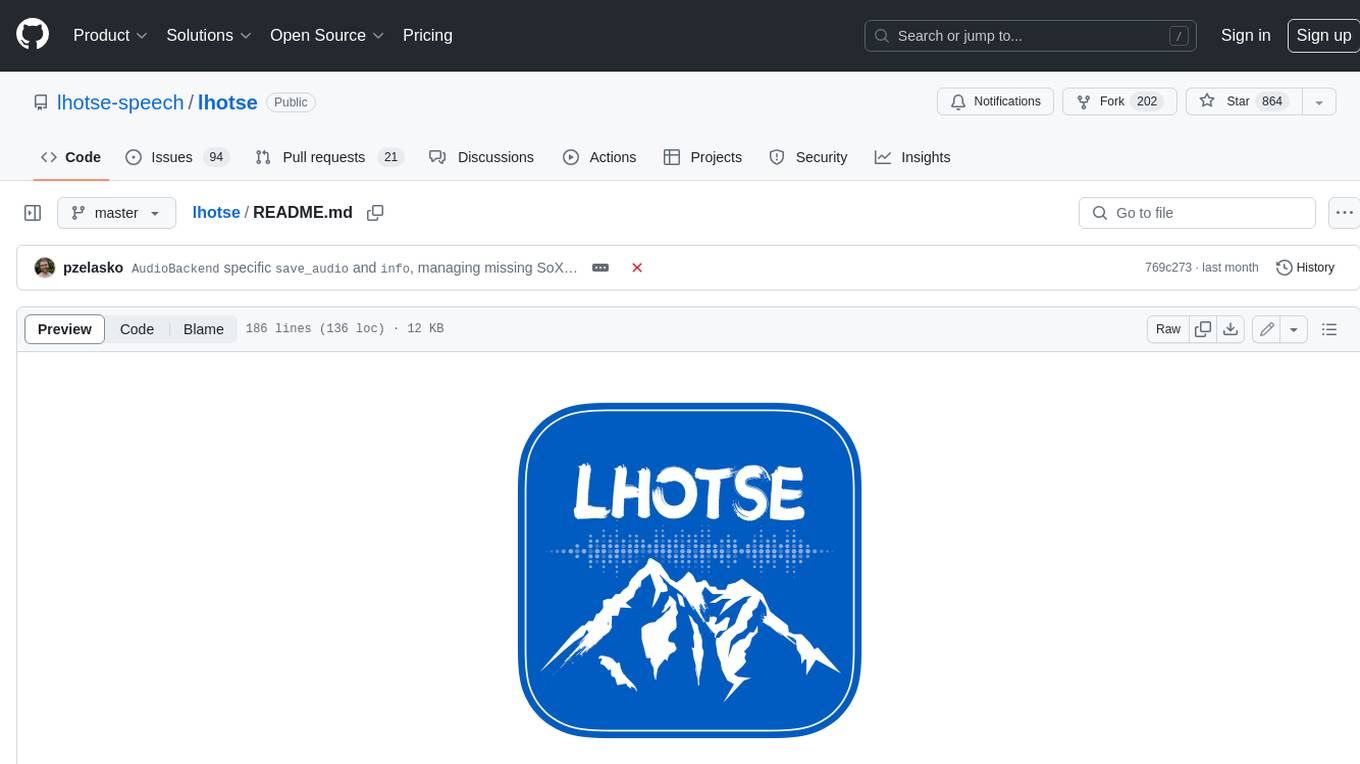
lhotse
Lhotse is a Python library designed to make speech and audio data preparation flexible and accessible. It aims to attract a wider community to speech processing tasks by providing a Python-centric design and an expressive command-line interface. Lhotse offers standard data preparation recipes, PyTorch Dataset classes for speech tasks, and efficient data preparation for model training with audio cuts. It supports data augmentation, feature extraction, and feature-space cut mixing. The tool extends Kaldi's data preparation recipes with seamless PyTorch integration, human-readable text manifests, and convenient Python classes.

agentok
Agentok Studio is a tool built upon AG2, a powerful agent framework from Microsoft, offering intuitive visual tools to streamline the creation and management of complex agent-based workflows. It simplifies the process for creators and developers by generating native Python code with minimal dependencies, enabling users to create self-contained code that can be executed anywhere. The tool is currently under development and not recommended for production use, but contributions are welcome from the community to enhance its capabilities and functionalities.

torchchat
torchchat is a codebase showcasing the ability to run large language models (LLMs) seamlessly. It allows running LLMs using Python in various environments such as desktop, server, iOS, and Android. The tool supports running models via PyTorch, chatting, generating text, running chat in the browser, and running models on desktop/server without Python. It also provides features like AOT Inductor for faster execution, running in C++ using the runner, and deploying and running on iOS and Android. The tool supports popular hardware and OS including Linux, Mac OS, Android, and iOS, with various data types and execution modes available.
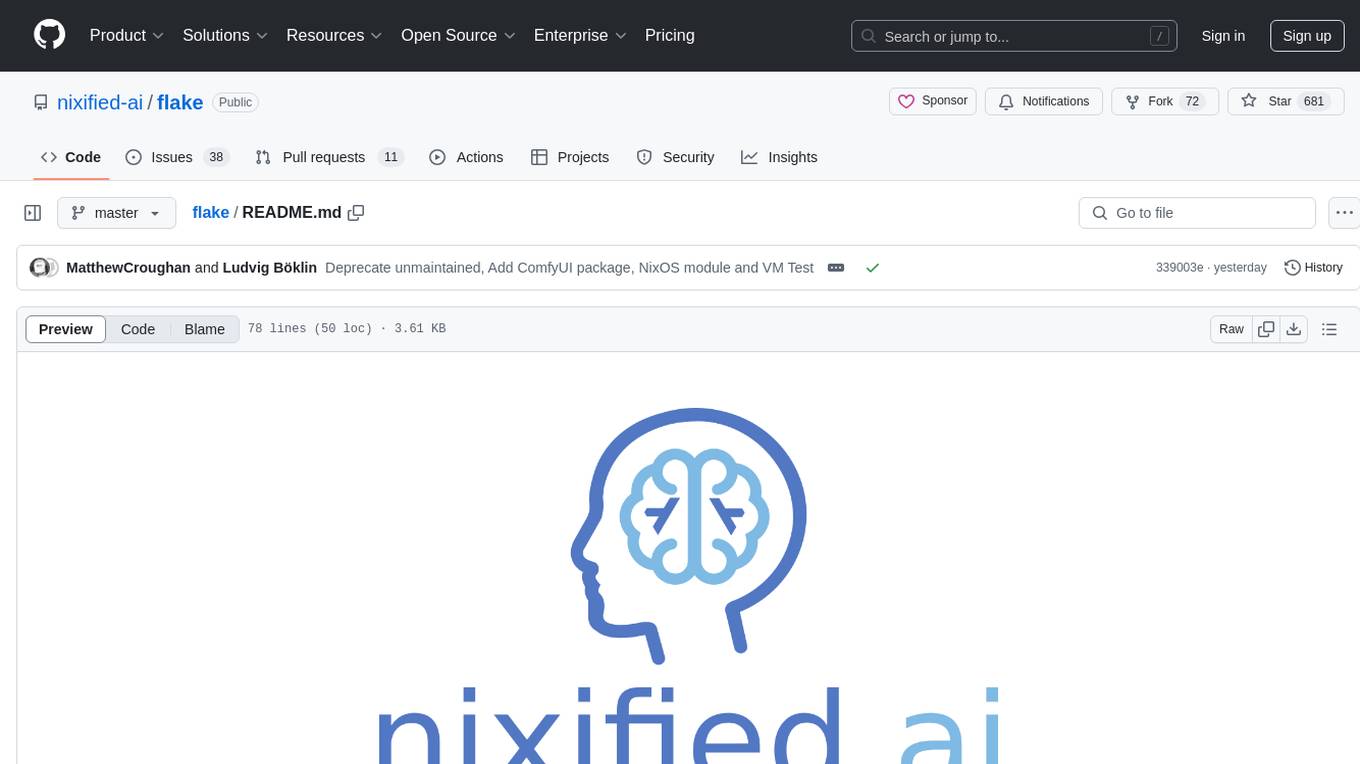
flake
Nixified.ai aims to simplify and provide access to a vast repository of AI executable code that would otherwise be challenging to run independently due to package management and complexity issues. The tool primarily runs on NixOS and Linux, with compatibility on Windows through NixOS-WSL. It can automatically utilize the GPU of the Windows host by setting LD_LIBRARY_PATH in the wrapper script. Users can explore the tool's offerings through the nix repl, with the main outputs including ComfyUI, a modular node-based Stable Diffusion WebUI, and deprecated packages like InvokeAI and textgen. To enable binary cache and save time building packages, users need to trust nixified-ai's binary cache by adding specific lines to their system configuration files.
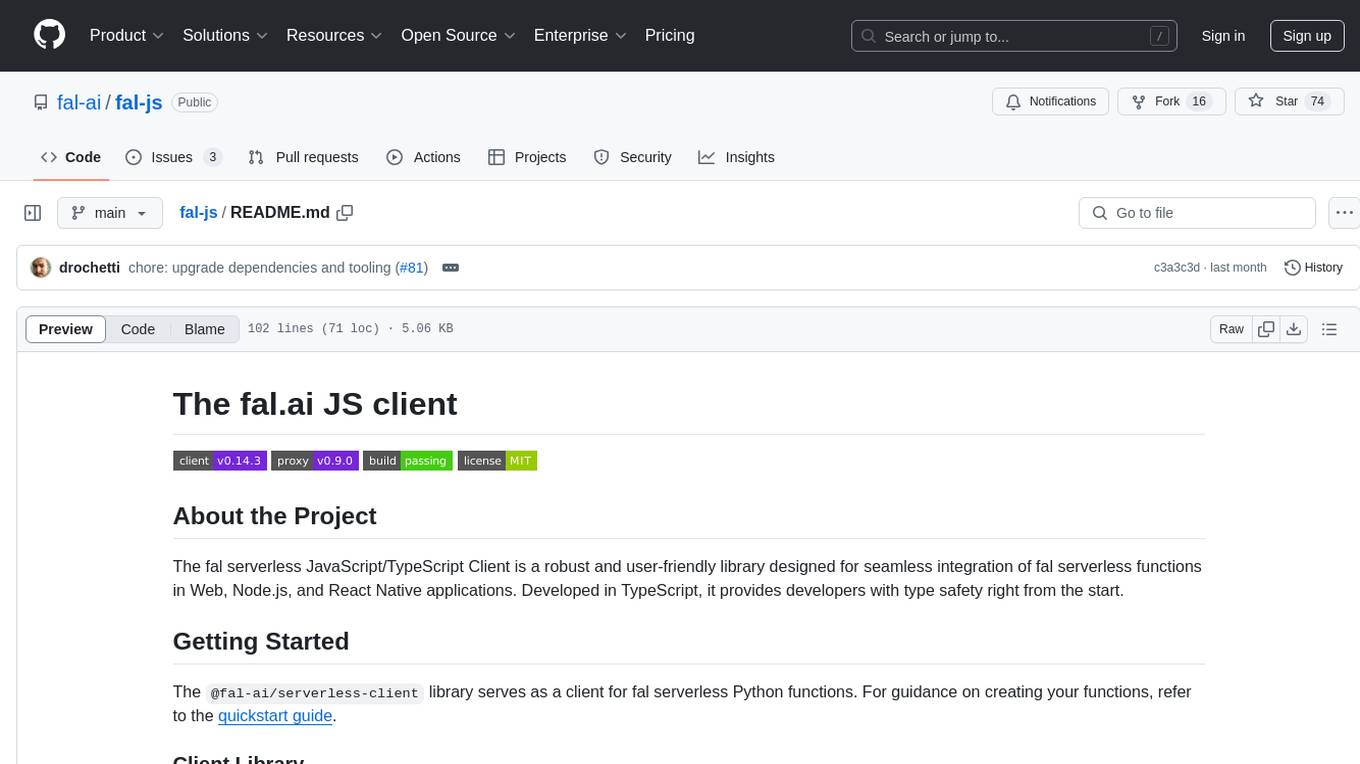
fal-js
The fal.ai JS client is a robust and user-friendly library for seamless integration of fal serverless functions in Web, Node.js, and React Native applications. Developed in TypeScript, it provides developers with type safety right from the start. The client library is crafted as a lightweight layer atop platform standards like `fetch`, ensuring hassle-free integration into existing codebases and flawless operation across various JavaScript runtimes. The client proxy feature allows secure handling of credentials by using a server proxy for serverless APIs. The repository also includes example Next.js applications for demonstration and integration.

labelbox-python
Labelbox is a data-centric AI platform for enterprises to develop, optimize, and use AI to solve problems and power new products and services. Enterprises use Labelbox to curate data, generate high-quality human feedback data for computer vision and LLMs, evaluate model performance, and automate tasks by combining AI and human-centric workflows. The academic & research community uses Labelbox for cutting-edge AI research.
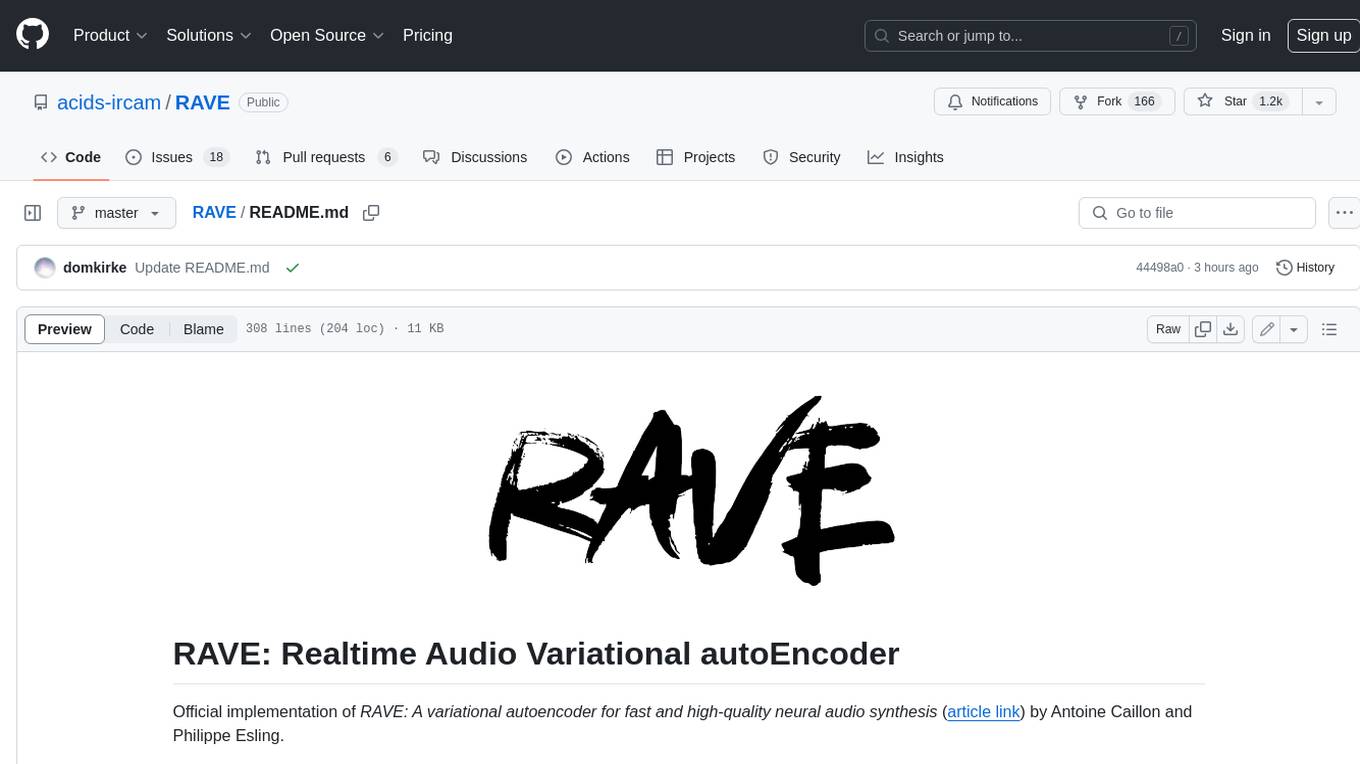
RAVE
RAVE is a variational autoencoder for fast and high-quality neural audio synthesis. It can be used to generate new audio samples from a given dataset, or to modify the style of existing audio samples. RAVE is easy to use and can be trained on a variety of audio datasets. It is also computationally efficient, making it suitable for real-time applications.
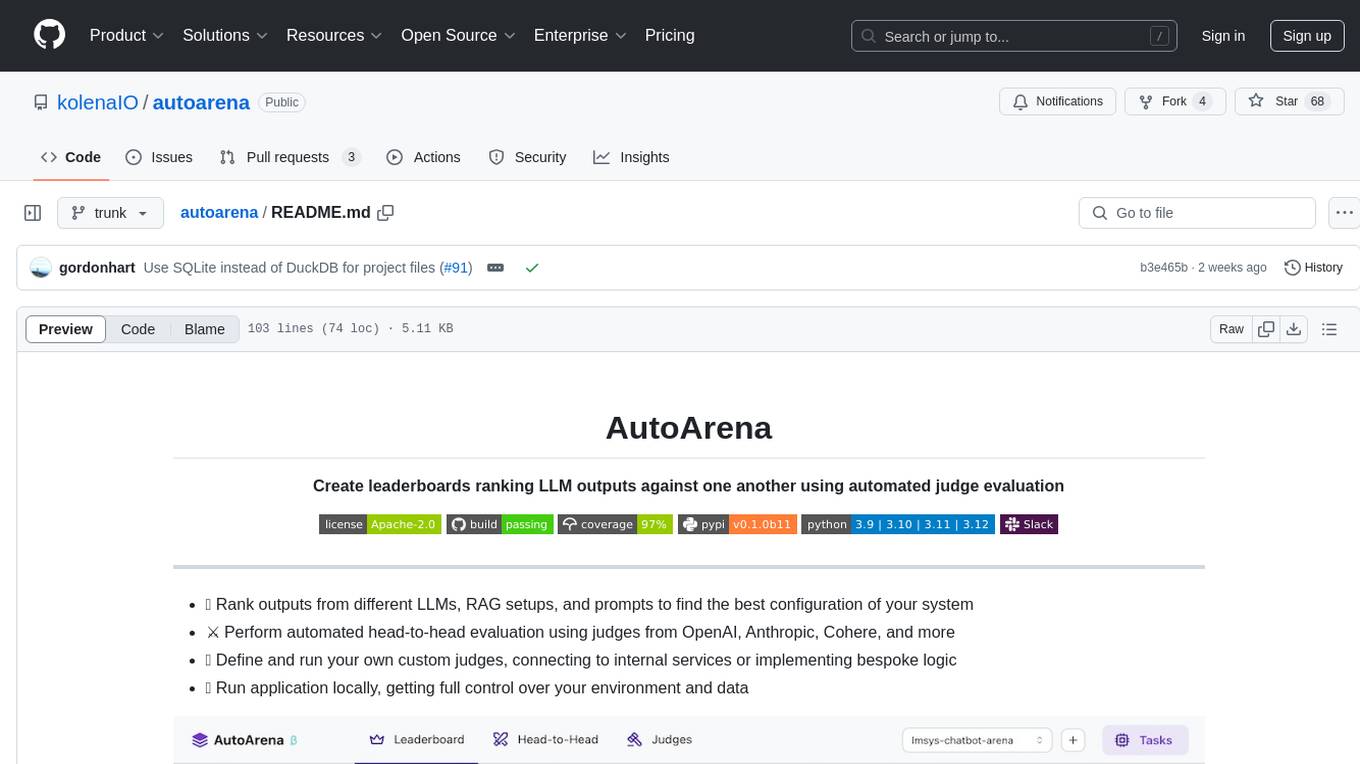
autoarena
AutoArena is a tool designed to create leaderboards ranking Language Model outputs against one another using automated judge evaluation. It allows users to rank outputs from different LLMs, RAG setups, and prompts to find the best configuration of their system. Users can perform automated head-to-head evaluation using judges from various platforms like OpenAI, Anthropic, and Cohere. Additionally, users can define and run custom judges, connect to internal services, or implement bespoke logic. AutoArena enables users to run the application locally, providing full control over their environment and data.
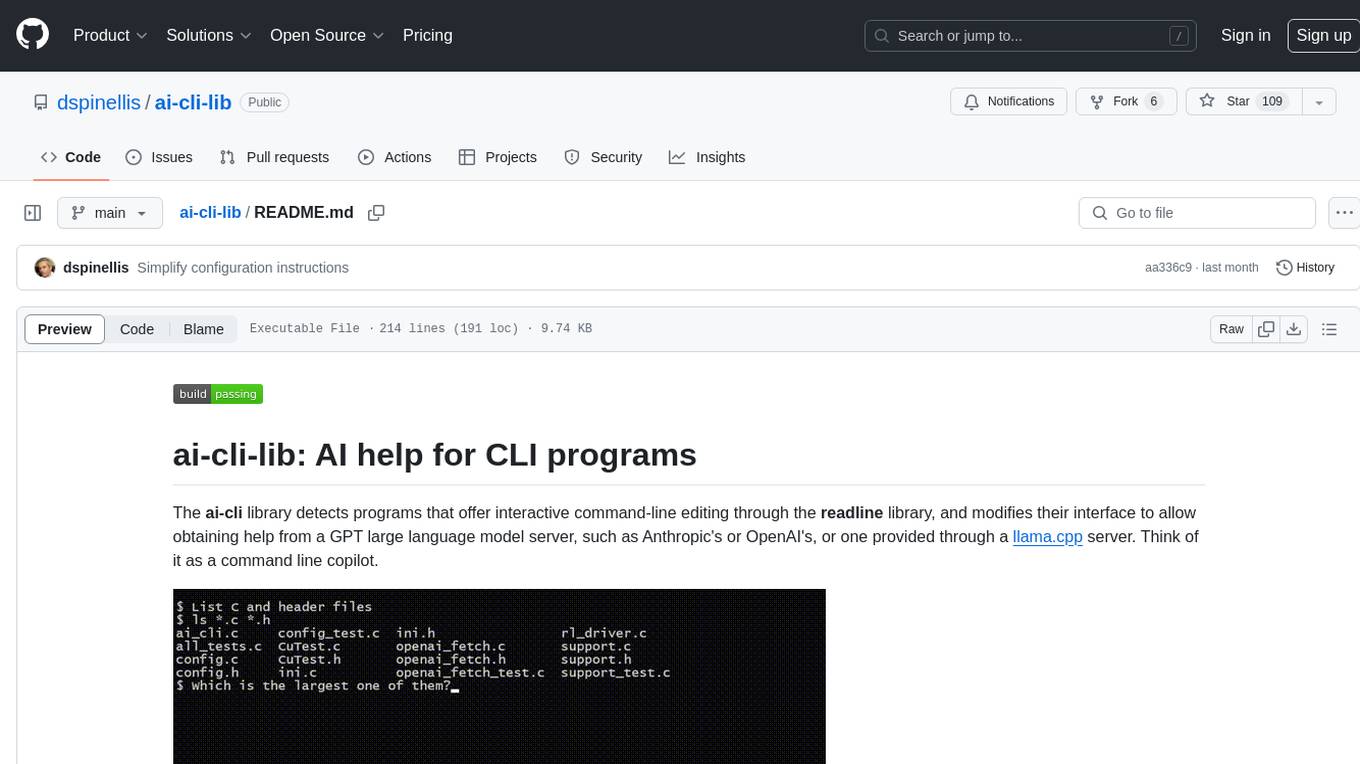
ai-cli-lib
The ai-cli-lib is a library designed to enhance interactive command-line editing programs by integrating with GPT large language model servers. It allows users to obtain AI help from servers like Anthropic's or OpenAI's, or a llama.cpp server. The library acts as a command line copilot, providing natural language prompts and responses to enhance user experience and productivity. It supports various platforms such as Debian GNU/Linux, macOS, and Cygwin, and requires specific packages for installation and operation. Users can configure the library to activate during shell startup and interact with command-line programs like bash, mysql, psql, gdb, sqlite3, and bc. Additionally, the library provides options for configuring API keys, setting up llama.cpp servers, and ensuring data privacy by managing context settings.
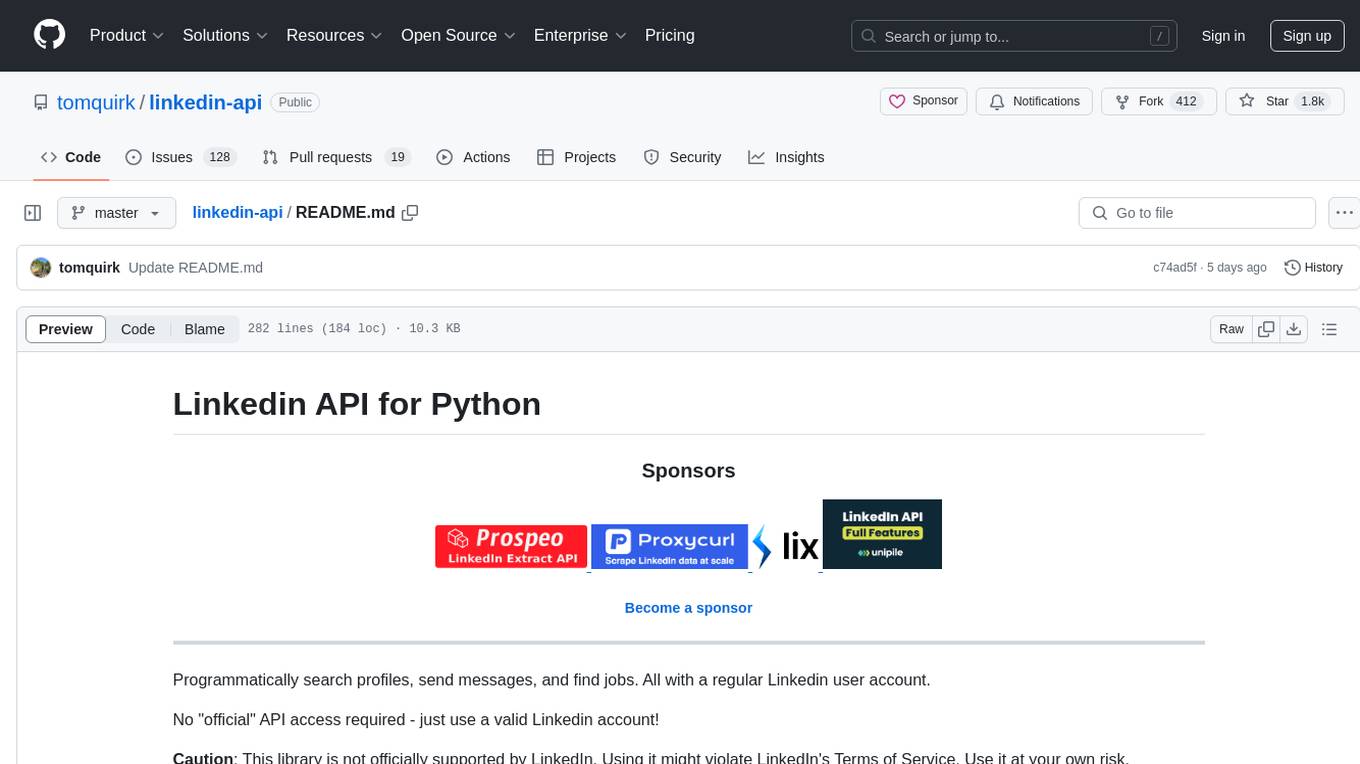
linkedin-api
The Linkedin API for Python allows users to programmatically search profiles, send messages, and find jobs using a regular Linkedin user account. It does not require 'official' API access, just a valid Linkedin account. However, it is important to note that this library is not officially supported by LinkedIn and using it may violate LinkedIn's Terms of Service. Users can authenticate using any Linkedin account credentials and access features like getting profiles, profile contact info, and connections. The library also provides commercial alternatives for extracting data, scraping public profiles, and accessing a full LinkedIn API. It is not endorsed or supported by LinkedIn and is intended for educational purposes and personal use only.
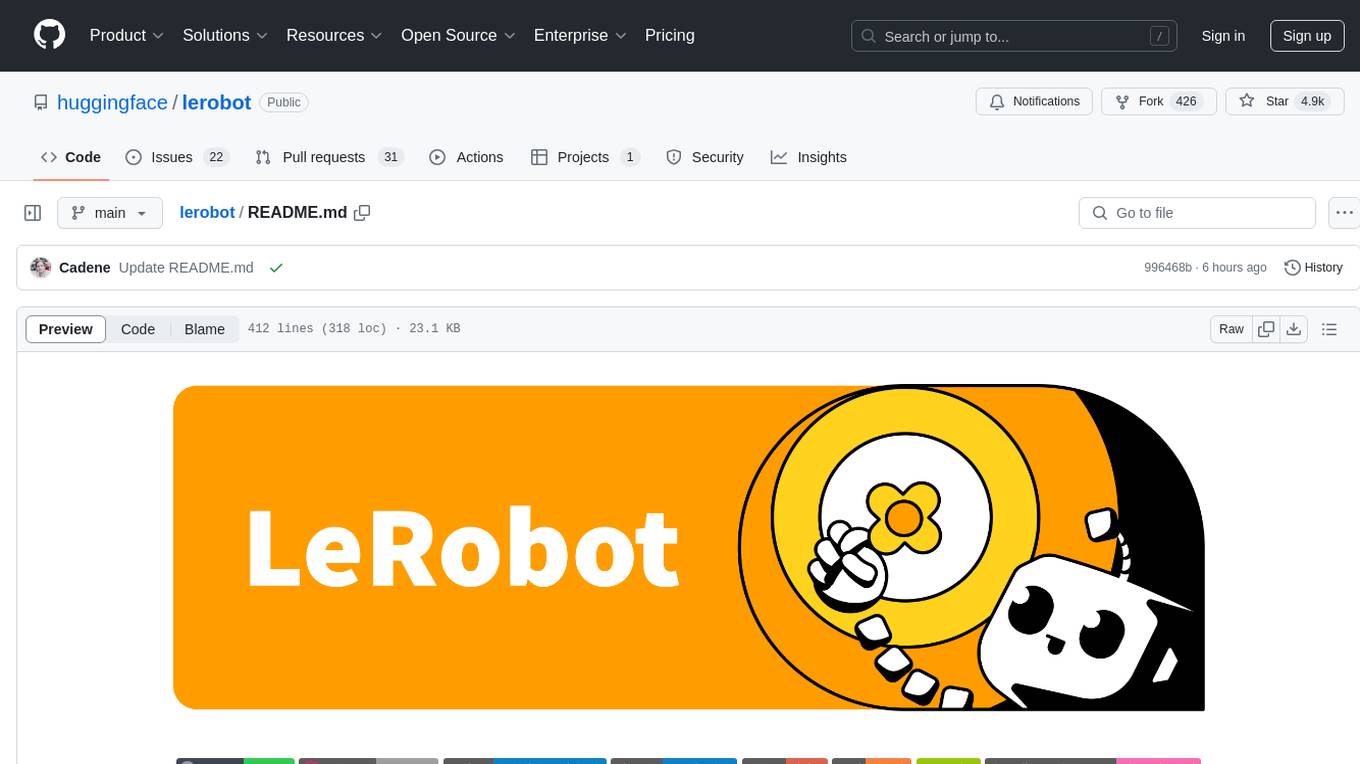
lerobot
LeRobot is a state-of-the-art AI library for real-world robotics in PyTorch. It aims to provide models, datasets, and tools to lower the barrier to entry to robotics, focusing on imitation learning and reinforcement learning. LeRobot offers pretrained models, datasets with human-collected demonstrations, and simulation environments. It plans to support real-world robotics on affordable and capable robots. The library hosts pretrained models and datasets on the Hugging Face community page.
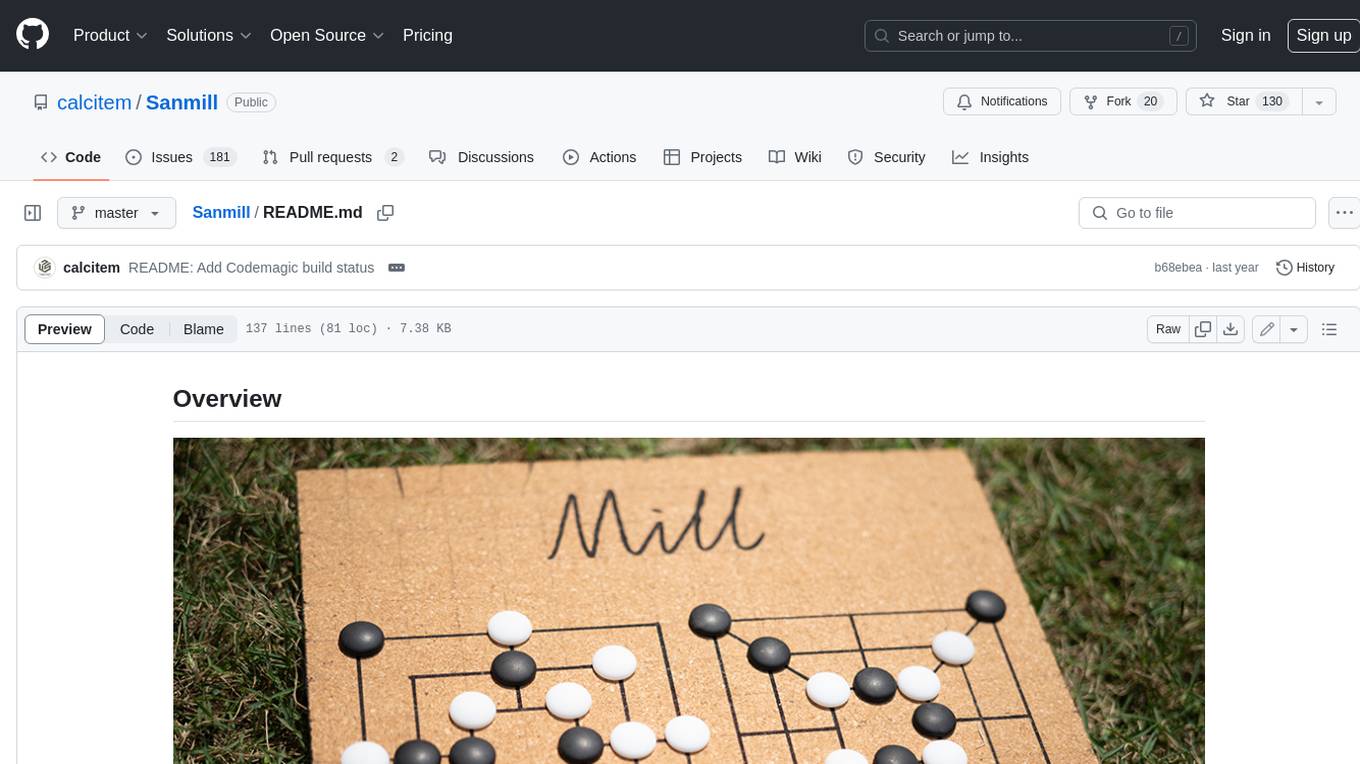
Sanmill
Sanmill is a free, powerful UCI-like N men's morris program with CUI, Flutter GUI and Qt GUI. Nine men's morris is a strategy board game for two players dating at least to the Roman Empire. The game is also known as nine-man morris , mill , mills , the mill game , merels , merrills , merelles , marelles , morelles , and ninepenny marl in English.

obs-localvocal
LocalVocal is a live-streaming AI assistant plugin for OBS that allows you to transcribe audio speech into text and perform various language processing functions on the text using AI / LLMs (Large Language Models). It's privacy-first, with all data staying on your machine, and requires no GPU, cloud costs, network, or downtime.
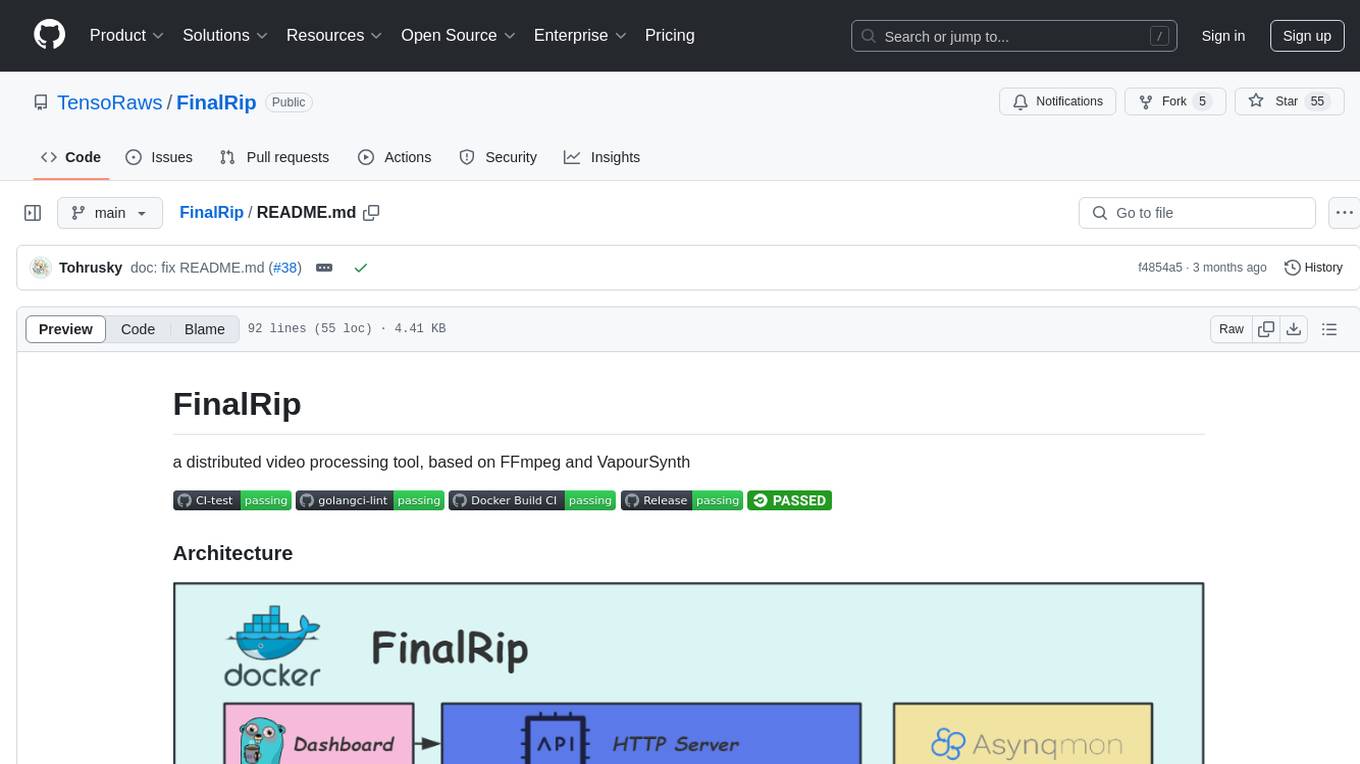
FinalRip
FinalRip is a distributed video processing tool based on FFmpeg and VapourSynth. It cuts the original video into multiple clips, processes each clip in parallel, and merges them into the final video. Users can deploy the system in a distributed way, configure settings via environment variables or remote config files, and develop/test scripts in the vs-playground environment. It supports Nvidia GPU, AMD GPU with ROCm support, and provides a dashboard for selecting compatible scripts to process videos.
For similar tasks

obs-cleanstream
CleanStream is an OBS plugin that utilizes AI to clean live audio streams by removing unwanted words and utterances, such as 'uh's and 'um's, and configurable words like profanity. It uses a neural network (OpenAI Whisper) in real-time to predict speech and eliminate unwanted words. The plugin is still experimental and not recommended for live production use, but it is functional for testing purposes. Users can adjust settings and configure the plugin to enhance audio quality during live streams.

obs-cleanstream
CleanStream is an OBS plugin that utilizes real-time local AI to clean live audio streams by removing unwanted words and utterances, such as 'uh' and 'um', and configurable words like profanity. It employs a neural network (OpenAI Whisper) to predict speech in real-time and eliminate undesired words. The plugin runs efficiently using the Whisper.cpp project from ggerganov. CleanStream offers users the ability to adjust settings and add the plugin to any audio-generating source in OBS, providing a seamless experience for content creators looking to enhance the quality of their live audio streams.
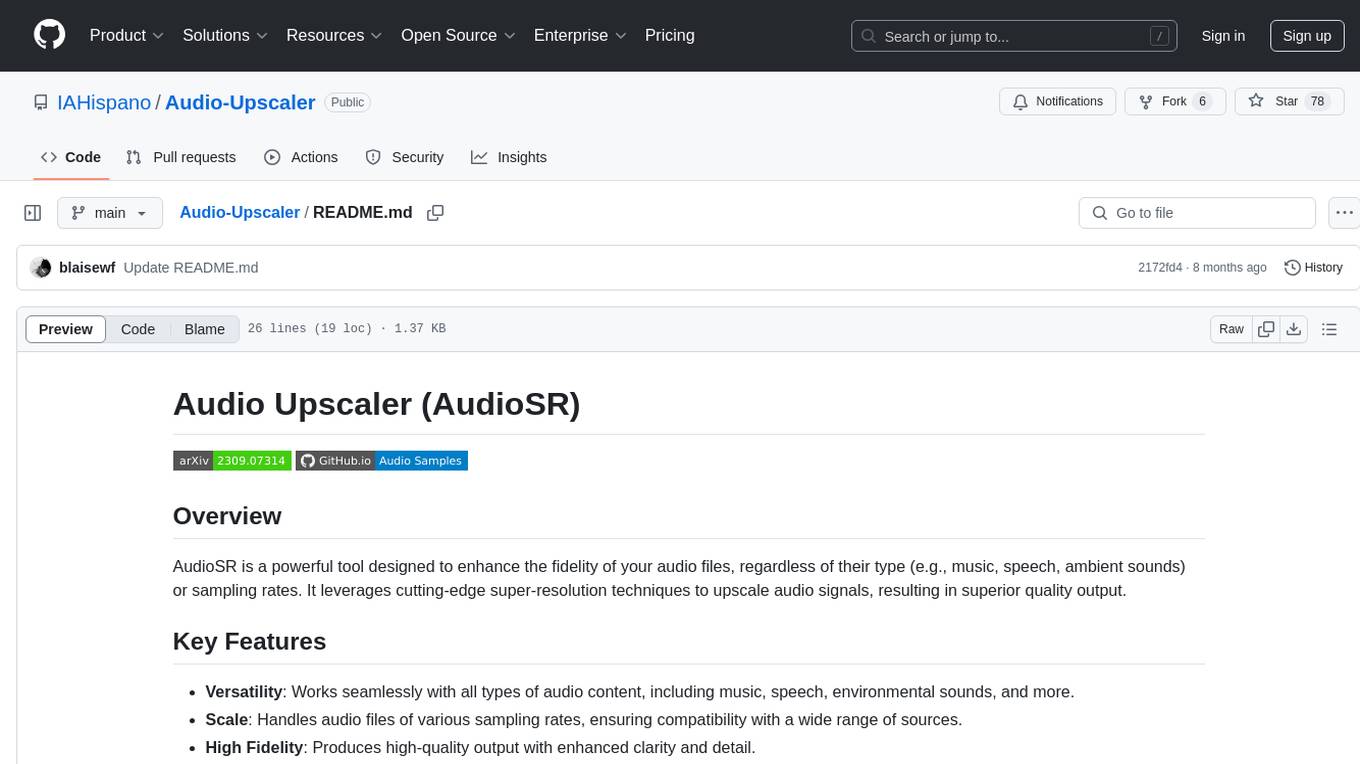
Audio-Upscaler
Audio Upscaler (AudioSR) is a powerful tool designed to enhance the fidelity of audio files, regardless of type or sampling rates. It leverages cutting-edge super-resolution techniques to upscale audio signals, resulting in superior quality output. The tool is versatile, handling all types of audio content, easy to use with a simple interface, and ensures high fidelity output with enhanced clarity and detail.
For similar jobs

promptflow
**Prompt flow** is a suite of development tools designed to streamline the end-to-end development cycle of LLM-based AI applications, from ideation, prototyping, testing, evaluation to production deployment and monitoring. It makes prompt engineering much easier and enables you to build LLM apps with production quality.

deepeval
DeepEval is a simple-to-use, open-source LLM evaluation framework specialized for unit testing LLM outputs. It incorporates various metrics such as G-Eval, hallucination, answer relevancy, RAGAS, etc., and runs locally on your machine for evaluation. It provides a wide range of ready-to-use evaluation metrics, allows for creating custom metrics, integrates with any CI/CD environment, and enables benchmarking LLMs on popular benchmarks. DeepEval is designed for evaluating RAG and fine-tuning applications, helping users optimize hyperparameters, prevent prompt drifting, and transition from OpenAI to hosting their own Llama2 with confidence.

MegaDetector
MegaDetector is an AI model that identifies animals, people, and vehicles in camera trap images (which also makes it useful for eliminating blank images). This model is trained on several million images from a variety of ecosystems. MegaDetector is just one of many tools that aims to make conservation biologists more efficient with AI. If you want to learn about other ways to use AI to accelerate camera trap workflows, check out our of the field, affectionately titled "Everything I know about machine learning and camera traps".

leapfrogai
LeapfrogAI is a self-hosted AI platform designed to be deployed in air-gapped resource-constrained environments. It brings sophisticated AI solutions to these environments by hosting all the necessary components of an AI stack, including vector databases, model backends, API, and UI. LeapfrogAI's API closely matches that of OpenAI, allowing tools built for OpenAI/ChatGPT to function seamlessly with a LeapfrogAI backend. It provides several backends for various use cases, including llama-cpp-python, whisper, text-embeddings, and vllm. LeapfrogAI leverages Chainguard's apko to harden base python images, ensuring the latest supported Python versions are used by the other components of the stack. The LeapfrogAI SDK provides a standard set of protobuffs and python utilities for implementing backends and gRPC. LeapfrogAI offers UI options for common use-cases like chat, summarization, and transcription. It can be deployed and run locally via UDS and Kubernetes, built out using Zarf packages. LeapfrogAI is supported by a community of users and contributors, including Defense Unicorns, Beast Code, Chainguard, Exovera, Hypergiant, Pulze, SOSi, United States Navy, United States Air Force, and United States Space Force.

llava-docker
This Docker image for LLaVA (Large Language and Vision Assistant) provides a convenient way to run LLaVA locally or on RunPod. LLaVA is a powerful AI tool that combines natural language processing and computer vision capabilities. With this Docker image, you can easily access LLaVA's functionalities for various tasks, including image captioning, visual question answering, text summarization, and more. The image comes pre-installed with LLaVA v1.2.0, Torch 2.1.2, xformers 0.0.23.post1, and other necessary dependencies. You can customize the model used by setting the MODEL environment variable. The image also includes a Jupyter Lab environment for interactive development and exploration. Overall, this Docker image offers a comprehensive and user-friendly platform for leveraging LLaVA's capabilities.

carrot
The 'carrot' repository on GitHub provides a list of free and user-friendly ChatGPT mirror sites for easy access. The repository includes sponsored sites offering various GPT models and services. Users can find and share sites, report errors, and access stable and recommended sites for ChatGPT usage. The repository also includes a detailed list of ChatGPT sites, their features, and accessibility options, making it a valuable resource for ChatGPT users seeking free and unlimited GPT services.

TrustLLM
TrustLLM is a comprehensive study of trustworthiness in LLMs, including principles for different dimensions of trustworthiness, established benchmark, evaluation, and analysis of trustworthiness for mainstream LLMs, and discussion of open challenges and future directions. Specifically, we first propose a set of principles for trustworthy LLMs that span eight different dimensions. Based on these principles, we further establish a benchmark across six dimensions including truthfulness, safety, fairness, robustness, privacy, and machine ethics. We then present a study evaluating 16 mainstream LLMs in TrustLLM, consisting of over 30 datasets. The document explains how to use the trustllm python package to help you assess the performance of your LLM in trustworthiness more quickly. For more details about TrustLLM, please refer to project website.

AI-YinMei
AI-YinMei is an AI virtual anchor Vtuber development tool (N card version). It supports fastgpt knowledge base chat dialogue, a complete set of solutions for LLM large language models: [fastgpt] + [one-api] + [Xinference], supports docking bilibili live broadcast barrage reply and entering live broadcast welcome speech, supports Microsoft edge-tts speech synthesis, supports Bert-VITS2 speech synthesis, supports GPT-SoVITS speech synthesis, supports expression control Vtuber Studio, supports painting stable-diffusion-webui output OBS live broadcast room, supports painting picture pornography public-NSFW-y-distinguish, supports search and image search service duckduckgo (requires magic Internet access), supports image search service Baidu image search (no magic Internet access), supports AI reply chat box [html plug-in], supports AI singing Auto-Convert-Music, supports playlist [html plug-in], supports dancing function, supports expression video playback, supports head touching action, supports gift smashing action, supports singing automatic start dancing function, chat and singing automatic cycle swing action, supports multi scene switching, background music switching, day and night automatic switching scene, supports open singing and painting, let AI automatically judge the content.






